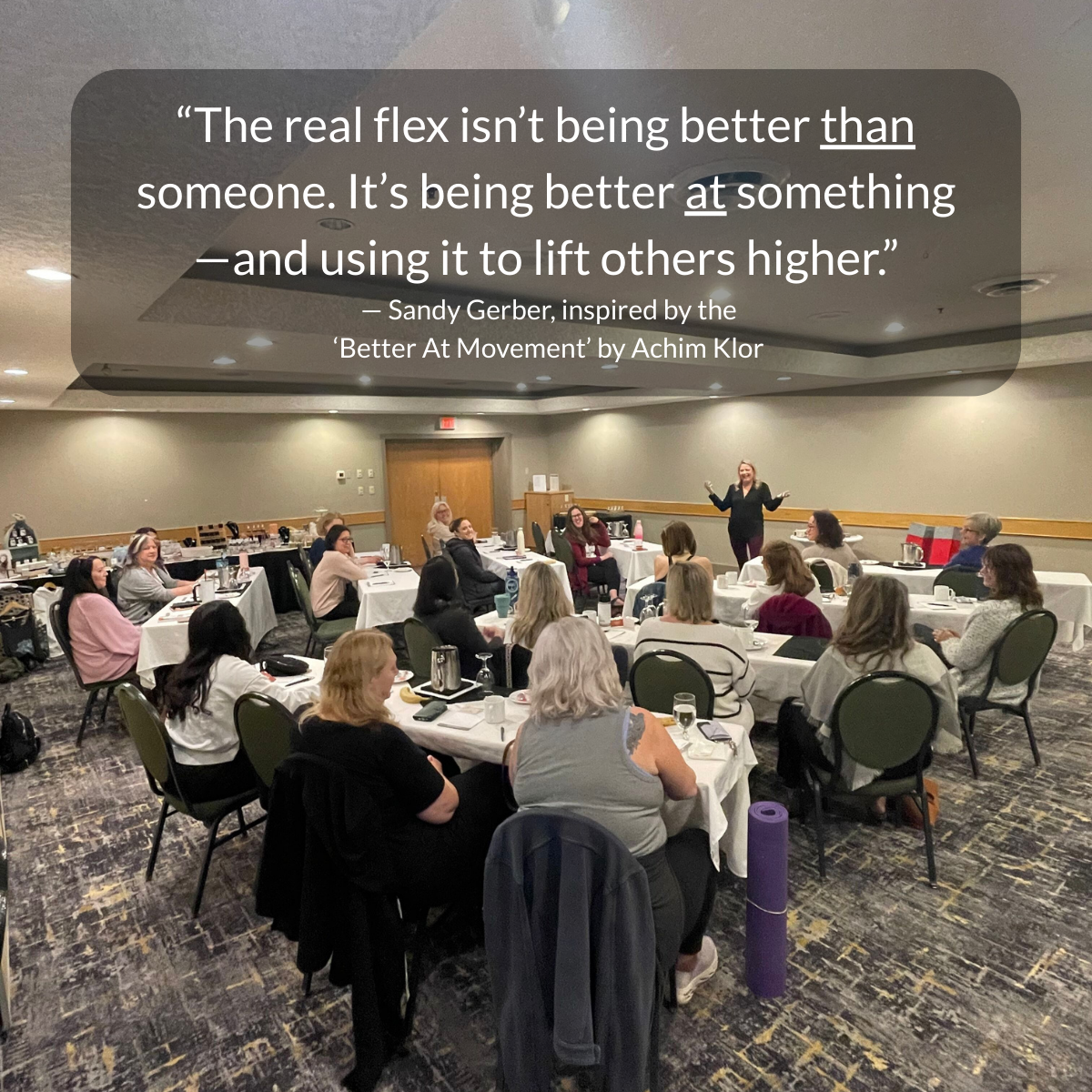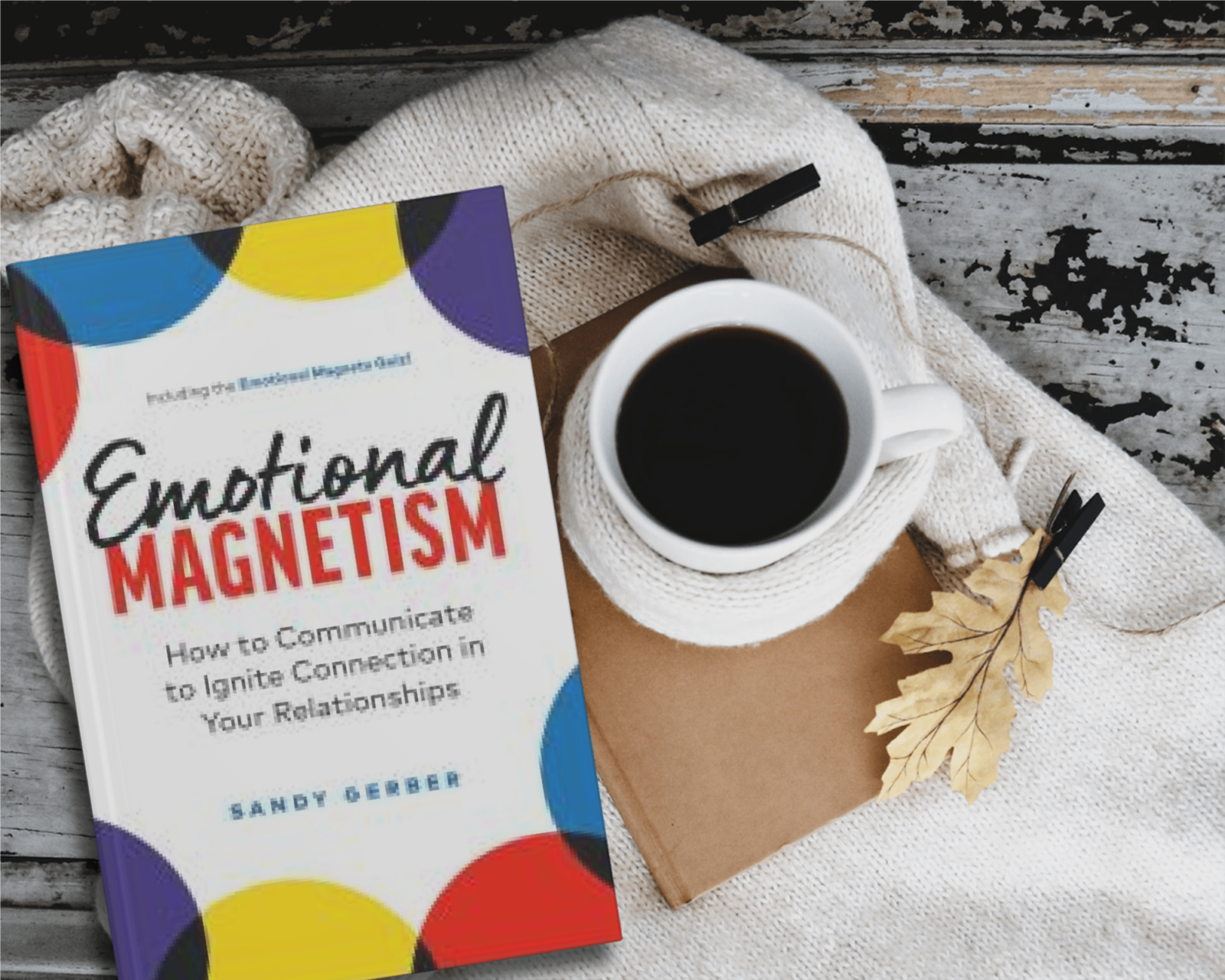I stumbled upon the four Emotional Magnets on a dark night in Vancouver. Quite literally—I was sitting in front of my laptop in the late hours, searching frantically for something that would help me take my business to the next level.
The Power of Emotional Appeal
At the time I was a recently separated mom with two young children. I needed to boost my business—and fast.
As a ferocious reader, I knew that some of the best business and personal development advice come from previous generations—the original sources. So when I came across a tattered copy of Roy Garn’s “The Power of Emotional Appeal”, I decided to purchase it.
The book promised rather outrageous things—like increasing your salary, improving your relationships…the list went on and on. It sounded like the book was capable of changing every single area of your life. Published from research of thousands in the 60s, people in advertising had not yet caught on to the idea that more is less and less is more.
A few nights later, curled up with a glass of wine I read the book. And then, everything changed.
It wasn’t an overnight change.
First, I applied everything Garn taught to my business and grew my business from my bedroom into one of “British Columbia’s Top 100 Fastest-Growing Companies”.
Applying Emotional Magnets to My Personal Life
Then, shortly later when having an argument with my ex-husband (whom I was trying to co-parent with and failing miserably), I had the idea to try it out on my personal life. And then my personal life changed. I went onto less fighting while co-parenting with my ex and finding the man of my dreams. Other personal relationships improved as well.
For me, what I came to coin, the four “Emotional Magnets” were the last puzzle pieces in a long personal development, communication, and marketing journey. Not that I didn’t keep learning after that (there’s always more), but they were the pieces that made my puzzle come together. In my book “Emotional Magnetism,” I share how to use them together with the powerful communication tools I use as a communication and marketing strategist. The same tools that have seen startups and large companies improve their bottom line.
Emotional Magnetism has received over 20 book awards, translated in three languages and is now being taught in academic curricula. Multiple buying options available: Capital One, Amazon, etc.
As it turns out, the book cover for “The Power of Emotional Appeal” did not lie—the book had the power to transform everything. So, let’s have a look at the four Emotional Magnets.
What are the four Emotional Magnets?
In short, there are four main emotional needs (Emotional Magnets) that motivate people to listen and act.
For some, when buying a car, the most important thing is safety. For others, it’s knowing that they get value for their money—either a cheap deal or incredible quality for a good price tag. The experience of driving the car is the most important thing for others. They envision themselves comfortably driving in a convertible, or riding through the dust of the desert in a 4×4. Yet others need to know that the car they buy reflects their achievements in life…or can help them achieve something new, like winning a challenging race.
And right there, you have the four Emotional Magnets: Safety, Value, Experience, and Achievement. I find it helpful to remember the acronym, S.A.V.E. for the four emotional needs (probably because they literally saved my life).
If you have the Safety Emotional Magnet, you like to know what you are getting yourself into at all times. You like routine and everything being in its place. When you decide on a career, you lean heavily towards one that will bring you a “safe” career path. You dislike change and aren’t particularly spontaneous. You might drive off on road trips like a true adventurer, but you’ve mapped out the route upfront, brought a first aid kit, and ensured your car was serviced.
If Achievement is more magnetizing, you like a good challenge as much as you like having your name in lights. You want to achieve goals and receive awards, love mingling with the “right” people in your chosen field, usually dress to impress, and enjoy being seen to have achieved many things in life. From elite sportsmen who thrive on pushing their own boundaries every day to Hollywood stars, achievers can be found in every field. That’s not to say that all achievers like effort—some rather cleverly find the path of least resistance to reach their goals.
If your Emotional Magnet is Value you need to know that every experience you get yourself into is worth your time. If you purchase something it better be worth your money. You are drawn to cost savings and high-quality items (usually a mixture of both—you always calculate what’s the better option). If you invest their time in a person, a business, or an adventure, you’re sure to know what your ROI will be. Quality friendships, business deals, and cheap eateries are some of the things you’re often attracted to. If your time, energy, or money, is wasted, you won’t be pleased.
And you Experience Emotional Magnet people love a good adventure! You thrive when adapting to change and dislike routine. Your minds need to be stimulated, your hearts engaged, and your sense of adventure peaked. You love to learn and evolve. Unfortunately, you also often jump ship before completing a task, easily get frustrated, and blow into town causing a whirlwind. Experience driven people are wonderful event planners, storytellers, and can come up with the most romantic and marvelous dates.
Understanding Emotional Magnets in Others
Someone drawn to Safety in a best-case scenario is a well-balanced individual with an organized life. In a worst-case scenario, they are constantly worrying about things—needing safety where there is none.
While most of us have one main Emotional Magnet (in some cases: two), we all have a little bit of everything. You might be Achievement driven in your career but be more drawn to Safety in your personal life. Humans are multifaceted individuals.
However, most of us have one or two main Emotional Magnets and when we speak to someone, plan surprises for someone, ask someone out to a restaurant, or do pretty much anything else, it’s important to remember what those Emotional Magnets are. Why?
Imagine inviting someone for a trip to Bali. You tell them the trip will be an adventure, you’ve only booked a hotel for the first two nights, you’ll drive around the island on a scooter, and find the best beaches for surfing.
Now, if this person is driven by Experience—great. They’ll jump on the opportunity. If, on the other hand, they’re driven by Safety, they’ll want to know where they’re staying, it’s safe to drive a scooter, if any vaccines are needed, and if you’ve bought trip insurance.
If it’s a person driven by Value, they’ll want to know if the accommodation will either provide quality for the money invested or give them a bang for their bucks. What’s the quality of food like? And will the experience of going to Bali be worth the overall price tag and time invested?
Lastly, if a person is driven by Achievement, they’ll want to know what rewards or challenges they can experience on the trip. Which hotels have incredible reviews? Will the trip give them Insta moments to capture and share with their following?
If you don’t provide experiences people are comfortable with, they won’t want to join you. The same goes for buying a house together with someone, deciding what restaurant to visit next, or offering them a job. Does the item or experience meet their emotional needs? If not, they won’t be interested.
In close personal relationships, you often must learn to satisfy both your and the other person’s emotional needs. If not, one or both of you will be unhappy.
And this, my friends, is how knowing the Emotional Magnets can change your life.
Not only can you prevent being led astray by your emotions — but you can also ensure you choose jobs, partners, homes, trips, etc. that cater to them. Lastly, you can ensure that the emotional needs of those around you are catered to so that you are able to build harmonious relationships with them, have empathy and ultimately, communicate to connect.
Find out your Emotional Magnets – take the free quiz in the book.
Then have your friends, family, and partner take it to find out what theirs are! You’ll have a lot of fun communicating your Emotional Magnets to one another and learning what you each need to be heard and understood. Enjoy!




0 Comments